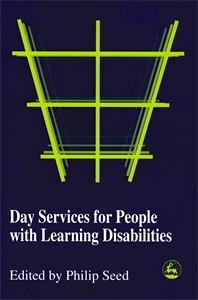Adopting a predominantly psychological approach, this book provides carers with up-to-date information and resources to provide appropriately individualised care to people with learning disabilities who self-injure.
Understanding and Working with People with Learning Disabilities who Self-Injure synthesises traditional (behavioural) and newer (psychological) approaches to understanding self-injury, drawing on psychoanalytic and social theory to provide practical guidelines for more sustained and effective support. It suggests that motivations for self-injury may be similar for people with and without learning disabilities, and draws on case work examples to suggest person-centred techniques that encourage communication particularly important with people who do not use verbal communication - and recovery. The book covers a range of specific needs, including people with autism who self-injure, and emphasises the views of people with learning disabilities themselves and their families about what has worked best, and why. At the end of each chapter, a variety of practical implications for the provision of support are given.
This book is for those supporting people with learning disabilities who self-injure and will be a useful resource for social workers, psychologists, counsellors, learning support workers, nurses and social and health care students.







